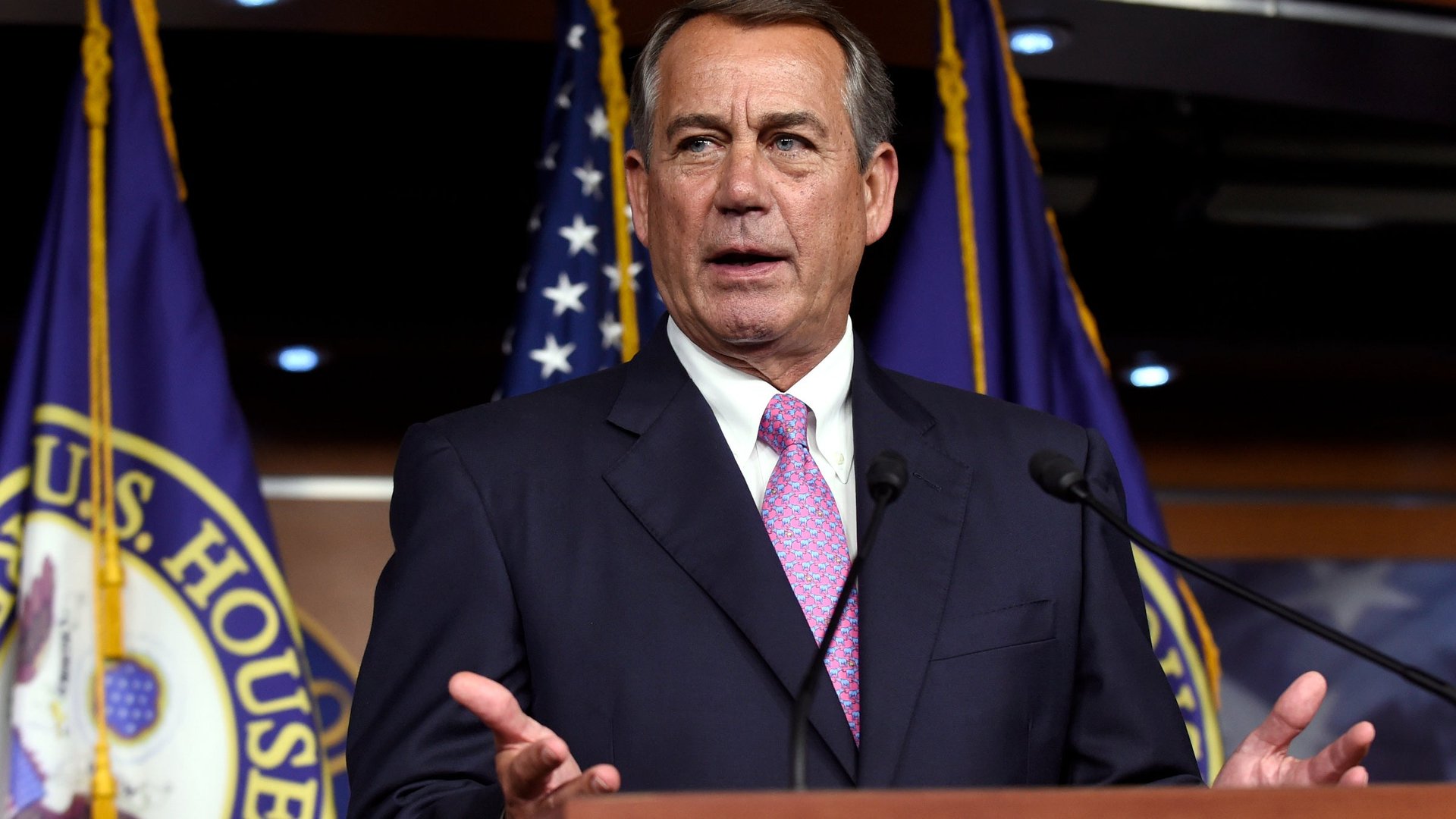US conservatives are using abortion to threaten another government shutdown
If it’s September and Barack Obama is the US president, it means the spending bills necessary to keep the country’s government operating are being held up by symbolic ideological demands made by conservative lawmakers.


If it’s September and Barack Obama is the US president, it means the spending bills necessary to keep the country’s government operating are being held up by symbolic ideological demands made by conservative lawmakers.
Amid Republican and Democratic haggling over how to fund the government next year (with a deadline of Sept. 30, when the fiscal year ends), Republicans are demanding an end to government funding used by Planned Parenthood to operate women’s health programs.
While the funds are not used for abortion services, politicians have seized on undercover videos taken by anti-abortion activists that purport to depict Planned Parenthood officials selling fetal organs, charges that the organization denies. The original videos have yet to be seen by the public.
But if this year is anything like recent ones, political acrimony, investors’ blood pressure, and campaign funding will be raised, but the government won’t go out of business.
Last year, the Republican demand was to reverse Obama’s effort to give unauthorized immigrants who have lived in the US for five years or more legal status. Though one department was briefly unfunded, a shutdown was averted without changes to the policy, which is currently facing a court challenge. In 2013, the battle to repeal the Affordable Care Act led to the government actually shutting down, but the Affordable Care Act remains intact.
The official deadline for a government shutdown is midnight on Sept. 30, but lawmakers are only scheduled to work for five days before then, raising the importance of this week’s sessions for leaders to find the votes to keep spending on a path reluctantly agreed to by the two parties at the end of 2013. A shutdown would interrupt services, be generally embarrassing, and the longer it lasts, hurt economic growth by reducing demand and increasing uncertainty for businesses.
But the frustration of conservatives is that with Obama in the White House and without a super-majority in the Senate, they are unable to achieve their policy goals completely, and unwilling to compromise them. So they blame their leaders, particularly House Speaker John Boehner, for a lack of power and commitment, and attempt to use votes on government operations to ram through their agenda.
Typically, Republicans are given opportunity to vent their feelings in a series of symbolic votes on the ideological demand before the final deal is passed without it, mostly with Democratic support.
Those venting votes will likely occur in the House and Senate this week, but one difference this year is the presidential campaign. Three Republican senators–Ted Cruz, Marco Rubio and Rand Paul—are lagging in the race, and may seek to use the platform of a government shutdown to raise their profiles, which make eventual compromise harder to find. Cruz in particular has been at the center of past shutdown fights and outspoken about the Planned Parenthood tapes.
But, while conservatives hope the Planned Parenthood videos and a state visit of the anti-abortion Catholic leader, Pope Francis, may shift public opinion, the politics of abortion are complicated, to say the least, and tend to unite the Democratic party. Grandstanding against women’s health funding may not be the goal of a candidate looking beyond the primary to potential Democratic nominee Hillary Clinton after the previous Republican standard-bearer had been criticized for alienating female voters.
And with the economy on a recent run of good form despite global agita over China, a government shutdown smacks of irresponsibility; Even the apolitical Federal Reserve chair Janet Yellen noted, in a press conference following the central bank’s decision to stand pat on US interest rates, that a shutdown would be counter-productive.
To gain breathing room, lawmakers are seeking a short-term extension of the US spending plan through November or December. But even that is fraught: Both parties want to end the debate on government spending well before election season begins in earnest in 2016, so that the any controversies play out on the campaign stage, not in Washington.